
Meet our Knowledge Partners
The knowledge partners in the SIRR project, focus on analysing and comparing Multi Helix hubs to support sustainable rural development. Their work bridges science and practice, emphasising collaboration and transformation in rural areas.
VISTRA – Vechta Institute of Sustainability Transformation in Rural Areas
The members of the Institute focus on the various dimensions and dynamics of transformation processes in rural areas in an interdisciplinary and transdisciplinary manner. We are interested in multi-scalar spatial challenges around the globe and observe process of change through the lens of sustainability. Geographers, economists, psychologists and other transition researchers at VISTRA understand transformations as processes, which are heavily influenced by the activities and impact of heterogenous actors and stakeholders involved in multiple helix arrangements.
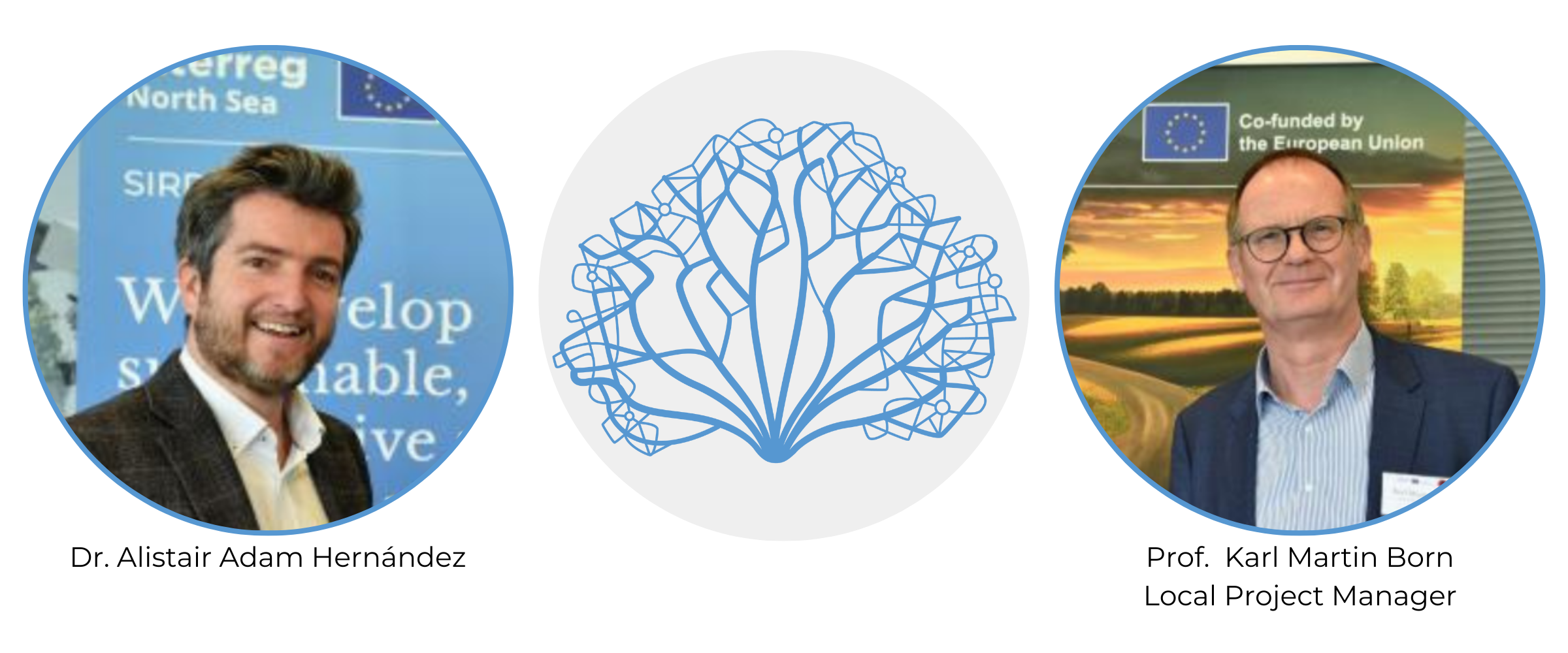
Within SIRR, VISTRA acts as the lead partner for the project’s knowledge generation. In partnership, we aim to analyse and compare the participating multiple helix hubs to identify possible supporting and hindering factors affecting the deepening process towards a consolidated multi-helix approach and questioning the efficiency of different pathways and structures towards it.
We consider continuous feedback with the hubs as well as their constant accompaniment together with our partners in SIRR key elements of transdisciplinary and transformational science
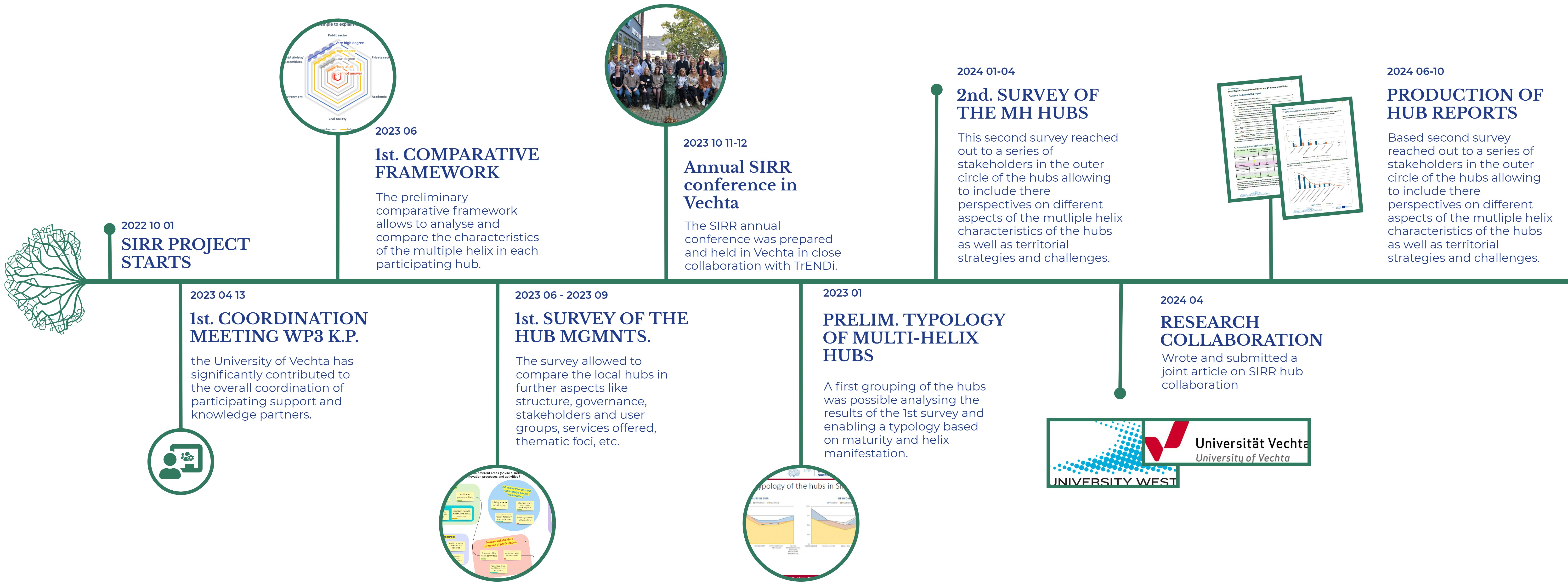
Please scroll down the page to see an enlarged timeline
University West
University West is located in Trollhättan, Sweden and has about 730 employees and 13 000 students. Our profile and area of specialization is Work-integrated Learning (WIL) which runs through our education from undergraduate to PhD-levels as well being a central research focus. We understand WIL in three ways:
- As a pedagogical philosophy where we view theoretical and practical knowledge as equally important and mutually dependent on each other, which means that we strive for co-creative research
- As a pedagogical method where we strive to integrate practical and theoretical knowledge in our courses and programs and where working life is a natural part
A field of study or discipline where we do research on knowledge and learning processes in working life understood in a broad sense
Image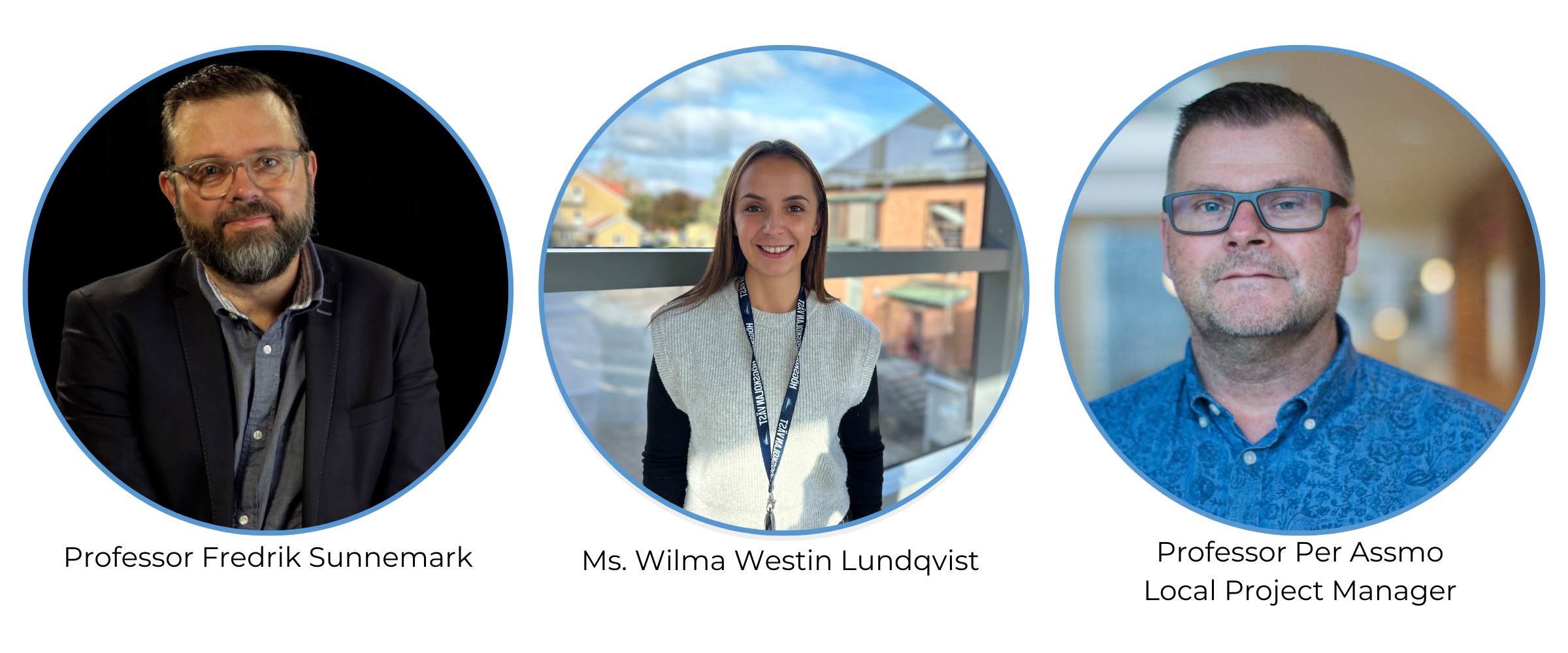
University West’s SIRR team consists of Professor Per Assmo, Professor Fredrik Sunnemark and Ms. Wilma Lundqvist Westin. Our research focuses on developing theoretical models that integrate the Multi-Helix Model with Work-Integrated Learning (WIL) to enhance the understanding and facilitation of learning processes. Additionally, we conduct a longitudinal study on the qualitative mapping of knowledge development in participating hubs, examining their implementation and interpretation of the Multi-Helix Model, with a particular emphasis on learning and knowledge transfer.
Furthermore, we are committed to strengthening the collaboration between the Sotenäs Hub and University West. Our research and development activities will also engage students from the master’s program in Work-Integrated Political Studies (WIPS) at University West, as well as PhD students where applicable.
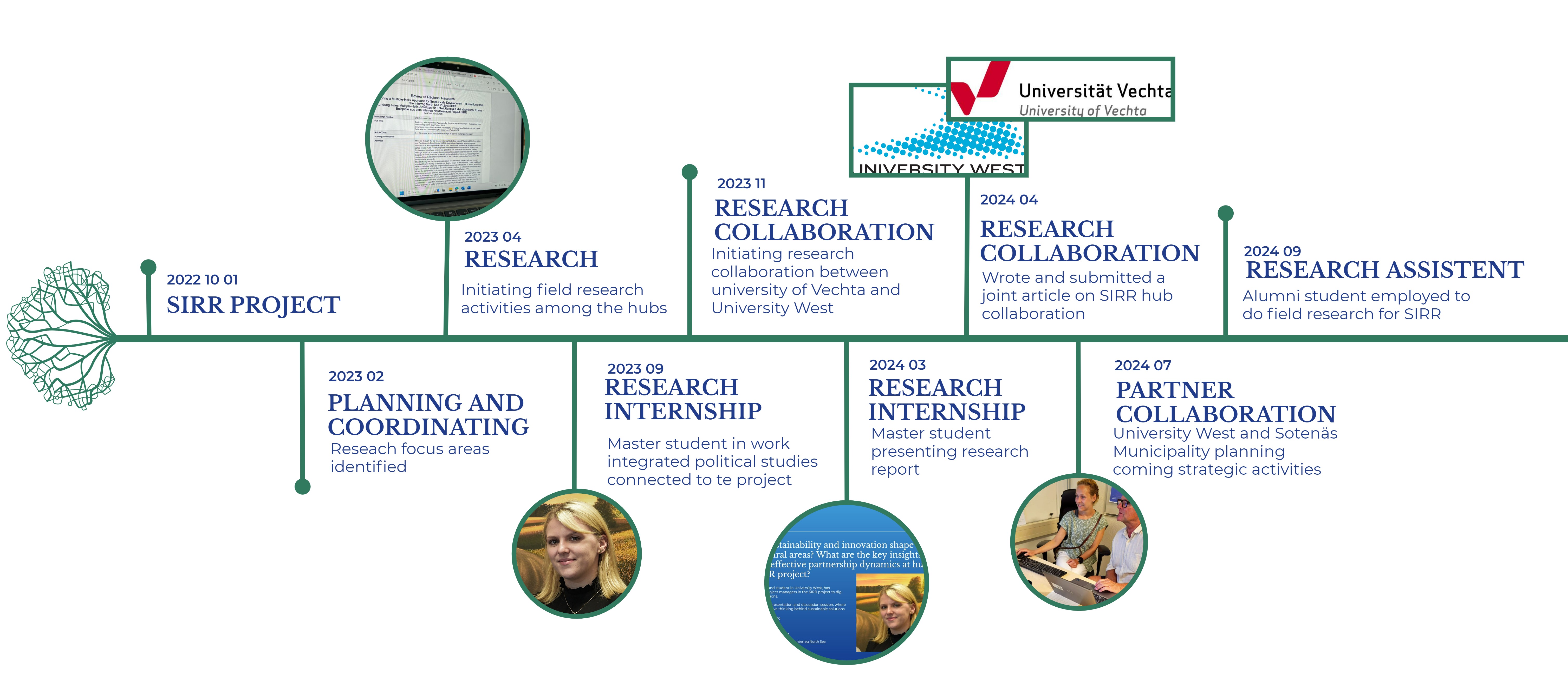
Please scroll down the page to see an enlarged timeline
About us
Aarhus University's Department of Business Development and Technology and its SIRR Pilot at AU Herning, is proud to participate in the groundbreaking project Sustainability, Innovation, and Resilience in Rural Areas (SIRR). This initiative underscores our commitment to advancing research, fostering innovation, and enhancing resilience in rural communities.
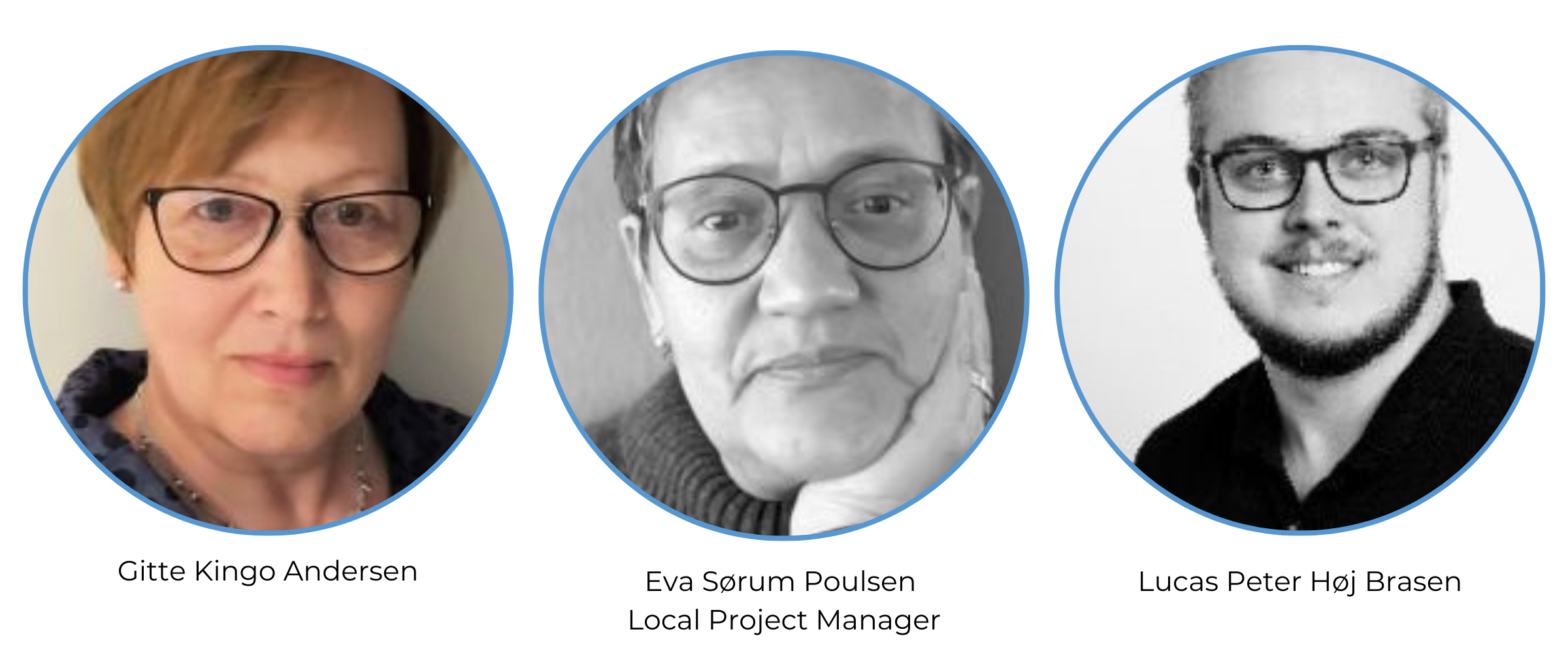
Within SIRR, the AU AIROD & ENGTECH research sections acts as a WP 3 partner for the project’s knowledge generation in Sustainability, Innovation, and Resilience in Rural Areas. AU Herning is dedicated to facilitating collaborative research and development in the ecosystem of companies, public organizations, and other stakeholders in our region. AU Herning emphasizes collaboration within the academic community and with a broad spectrum of local, regional, national, and international partners doing:
- Interdisciplinary Research: Fostering collaboration across sections, departments, and universities worldwide
- Stakeholder Engagement: Partnering with local and international businesses, public organizations, and research institutions to drive innovation and practical solutions
- Educational Integration: Ensuring our research directly informs and enhances the BSc in Economics and Business Administration, MSc in Information Technology (IT, Communication and Organization), and MSc in Engineering (Technology Based Business Development) programs
Based on this, The SIRR Pilot at AU Herning contributes to the SIRR project WP 2 HUBs by:
- Enhance Rural Sustainability: Develop and implement sustainable practices tailored to rural areas
- Foster Innovation: Encourage the creation of innovative solutions to address unique rural challenges
- Build Resilience: Strengthen the ability of rural communities to adapt and thrive in the face of economic and environmental changes
- Facilitate the SIRR Project Goals transnational: E.g., development of a Stakeholder mapping tool
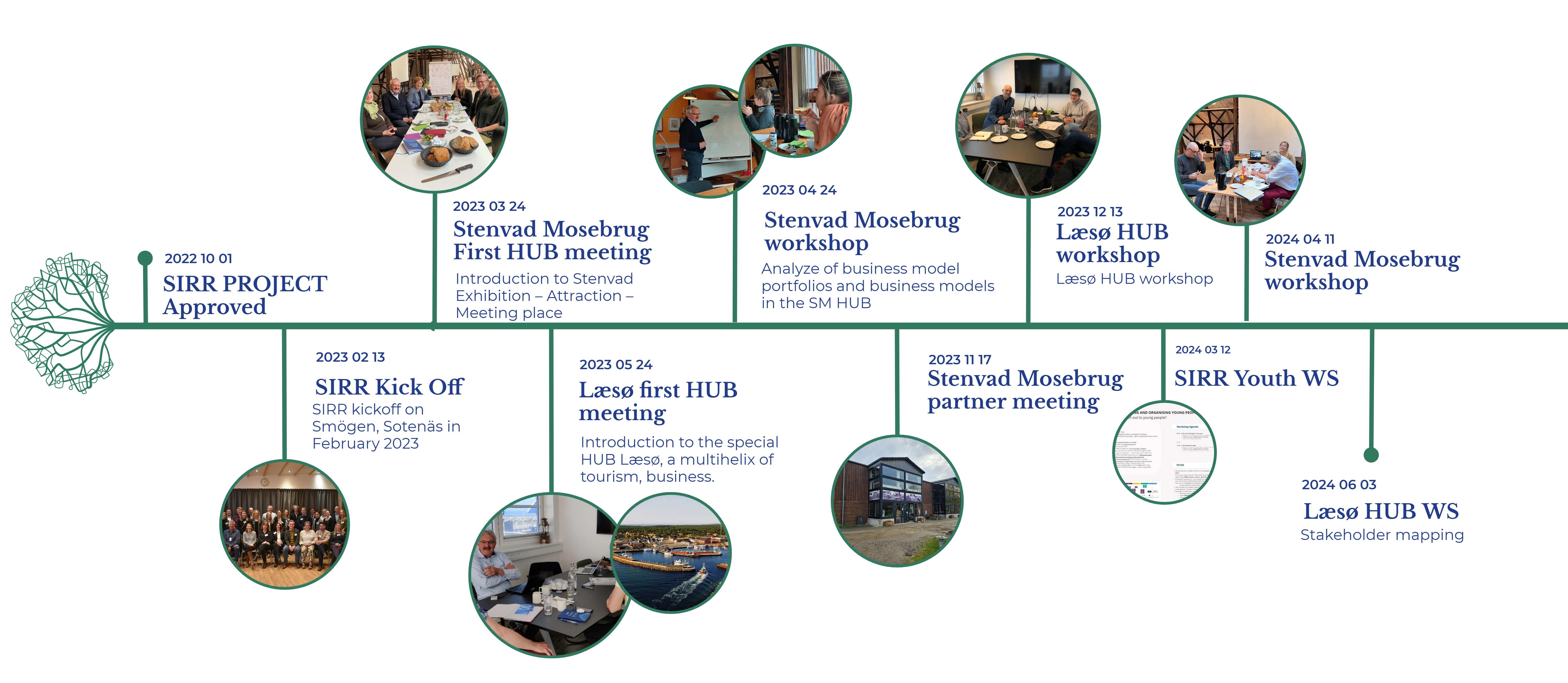
Please scroll down the page to see an enlarged timeline
HoloHouse - an agency which broadens perspectives of sustainable development and drives the transition
HoloHouse serves as a dynamic agency dedicated to advancing sustainable development and fostering transformative change. The mission is to accelerate the transition to sustainability by facilitating impactful interactions and knowledge exchange among diverse stakeholders.
From businesses to academia, students, and society at large, HoloHouse provides essential tools and insights necessary to meet the growing demand for sustainable products and services.
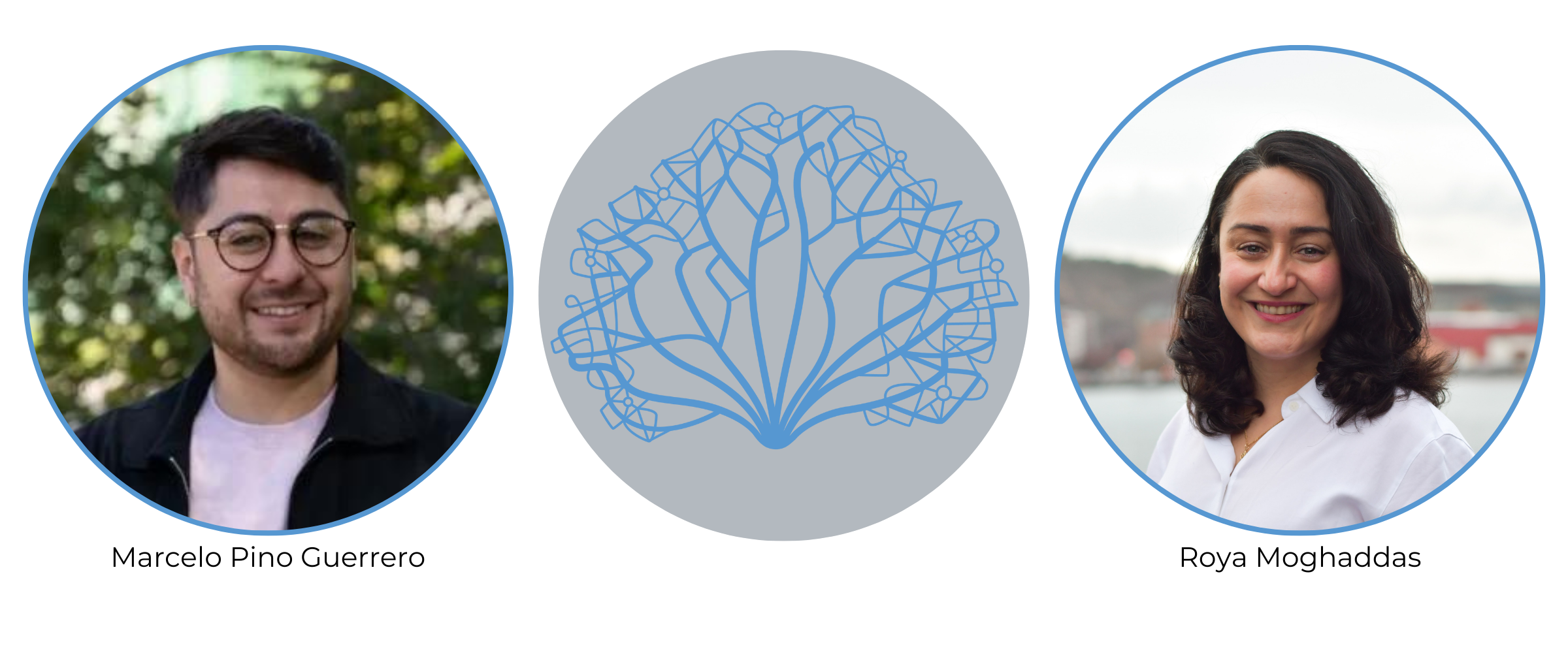
In the SIRR project, HoloHouse plays a pivotal role as a regional hub committed to enhancing sustainability knowledge and competencies. Through the involvement in student projects and tailored e-learning programmes, HoloHouse supports the hubs empowering companies, municipalities, and civil society to embrace sustainable practices.
- we are enthusiastic about exploring new opportunities within the project to integrate sustainability from inception to completion. Our goal is to ensure that sustainability becomes intrinsic to decision-making processes, aligning closely with the objectives of the EU Green Deal
HoloHouse expects collaboration to improve stakeholder engagement and project outcomes. However, embedding sustainability in project planning remains a challenge. HoloHouse aims to tackle this by using the project's platform to build a strong framework for sustainable innovation and resilience across the SIRR hubs.
HoloHouse envisions the SIRR project as a catalyst for learning and innovation within and between hubs. By harnessing diverse tools and methodologies, the goal is to uncover new pathways to sustainability, resilience, and innovation. Over the next five years, the pilot initiatives are ready to generate invaluable insights and metrics that will guide future sustainability initiatives and address potential bottlenecks.
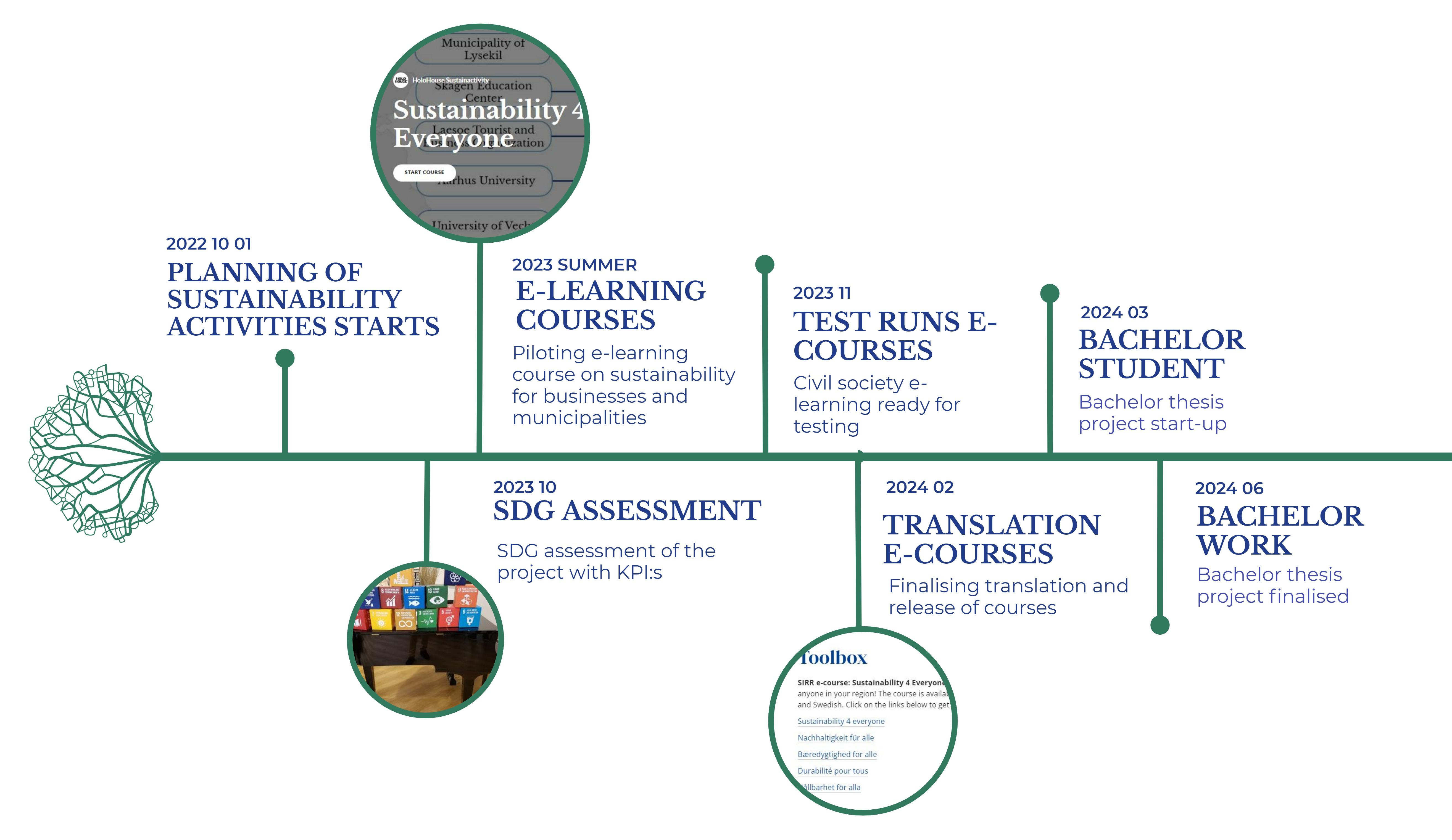
Please scroll down the page to see an enlarged timeline
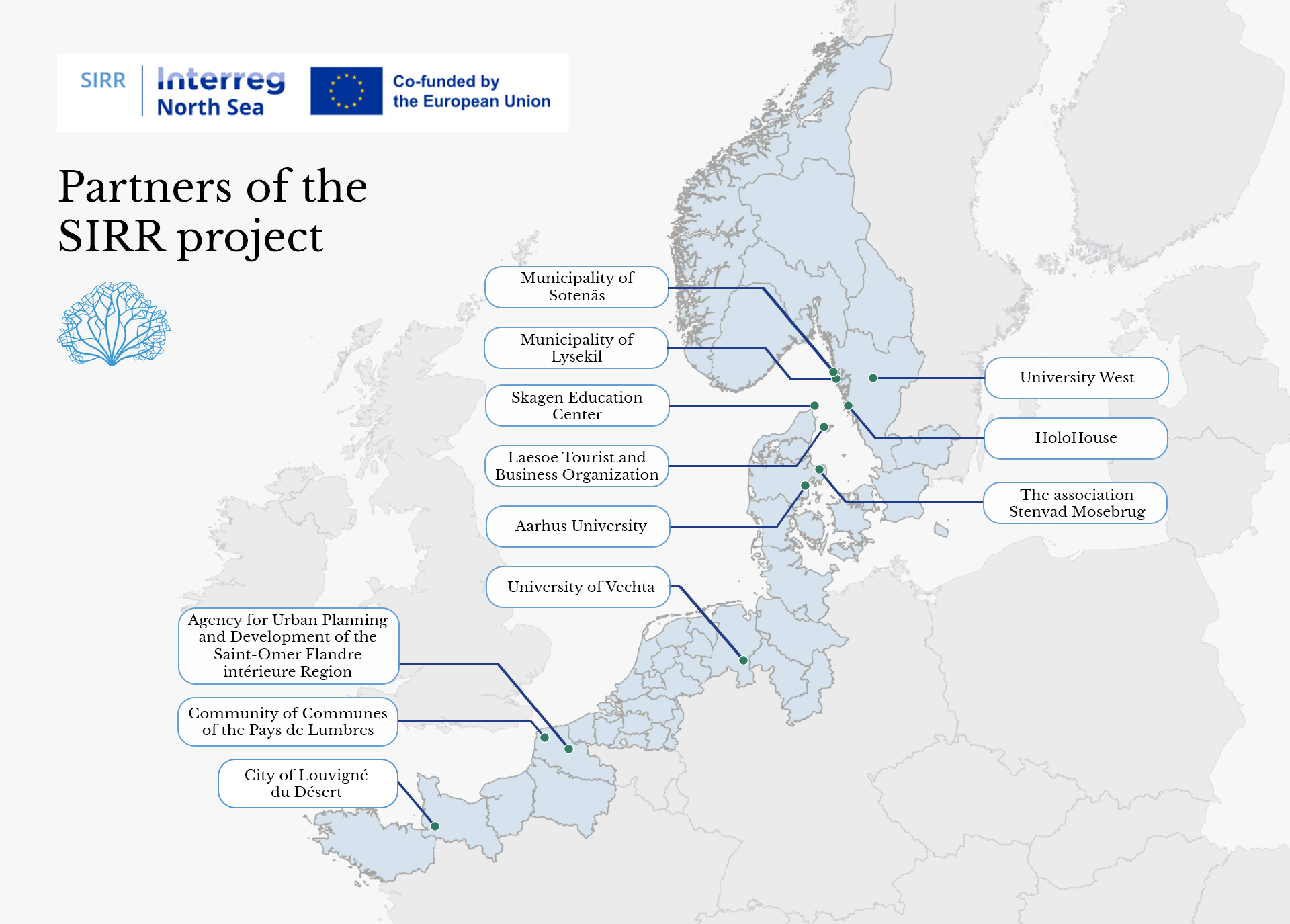
Timeline - University of Vechta, Germany

Timeline - University West, Sweden

Timeline - Aarhus University, Denmark
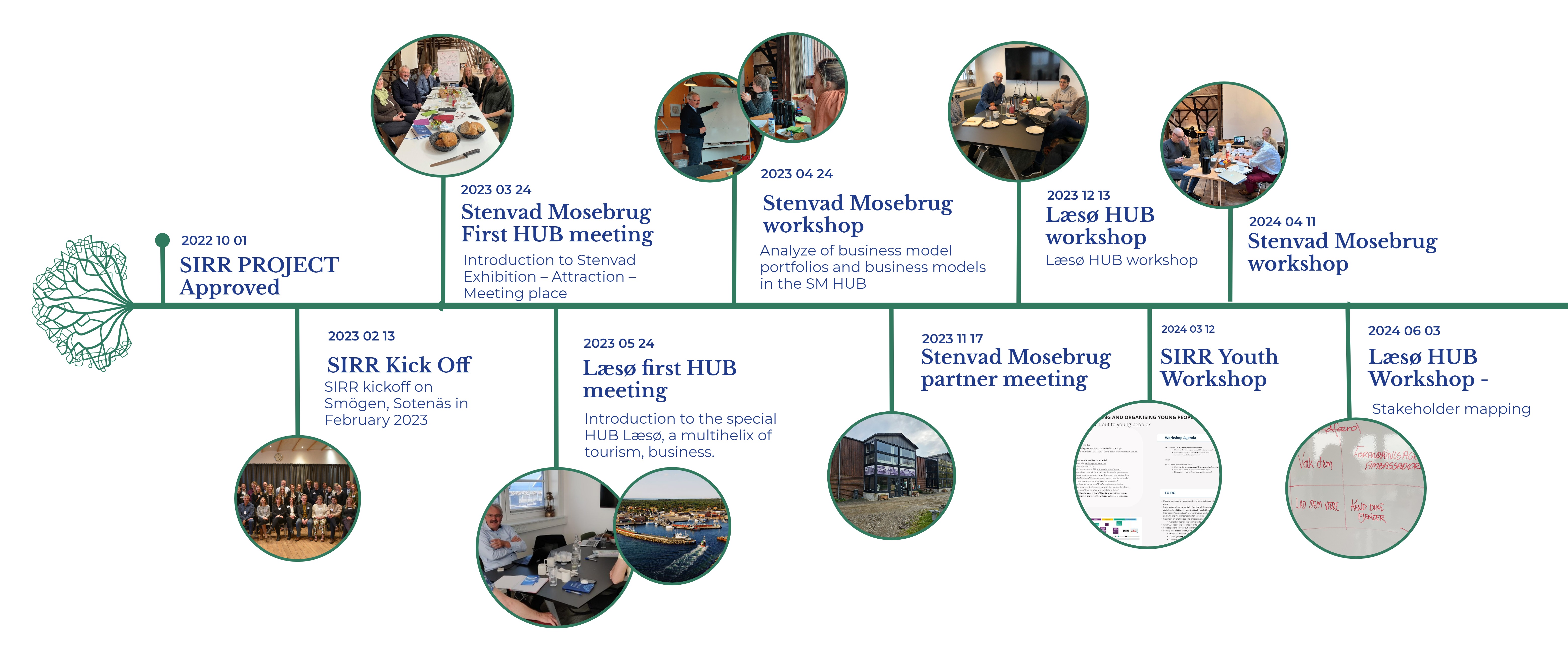
Timeline - HoloHouse, The Sustainability Agency, Sweden

